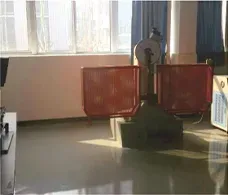Finding Reliable Manufacturers for E7016 Welding Electrodes and Their Quality Assurance Practices
Understanding the E7016 Welding Electrode Manufacturer Insights
Welding is an indispensable process in various industries, ranging from construction to automotive manufacturing. Among the many types of electrodes available, the E7016 welding electrode stands out due to its characteristics and versatility. To understand this electrode better, it is essential to consider its specifications, applications, and what manufacturers bring to the table.
What is the E7016 Welding Electrode?
The E7016 welding electrode is a low-hydrogen, medium-strength, and all-position electrode. The classification E7016 indicates specific properties the E denotes it as an electrode, 70 signifies its minimum tensile strength of 70,000 psi, and 16 points to its welding position capability and the amount of hydrogen in the coating.
The electrode is widely recognized for its smooth arc stability and minimal spatter, making it an excellent choice for various welding positions, including flat, vertical, and overhead. Due to its low-hydrogen content, the E7016 minimizes the risk of hydrogen-induced cracking, especially when welding high-strength steels.
Applications of E7016 Electrodes
E7016 electrodes are commonly used in the fabrication and repair of structural steel components, especially in fields that require robust and reliable welds. They are suitable for welding low and medium carbon steels, making them ideal for projects demanding high toughness and tensile strength.
Some of the typical applications include
welding electrode e7016 manufacturer

1. Construction Used in beams, columns, and frames for buildings and bridges due to their strength and durability. 2. Manufacturing Suitable for machinery parts, automotive components, and heavy equipment that require significant structural integrity. 3. Shipbuilding Essential in the construction of ships and marine vessels, where resistance to harsh conditions is vital. 4. Pipeline Fabrication Ideal for welding pipelines due to their low-hydrogen properties, preventing defects during the welding process.
Choosing the Right Manufacturer
When selecting an E7016 welding electrode, the manufacturer plays a crucial role in ensuring quality and performance. A reputable manufacturer will adhere to strict industry standards and quality control measures to produce electrodes that meet or exceed specifications.
Here are some factors to consider when assessing manufacturers
1. Certification Opt for manufacturers with certifications, such as ISO or AWS standards, which ensure the products meet quality and safety requirements. 2. Material Quality High-quality raw materials lead to better electrode performance. Trustworthy manufacturers source their materials responsibly to ensure consistency in the final product. 3. Research and Development Manufacturers that invest in R&D can offer advanced welding technologies, which can enhance the electrodes' performance in various welding applications. 4. Customer Support A reliable manufacturer provides excellent customer service and technical support, helping clients choose the right electrode for their specific needs and troubleshooting any issues.
Conclusion
The E7016 welding electrode is a vital tool in the welding industry, offering various benefits, including strong welds and reduced risk of cracking. When sourcing E7016 electrodes, considering the manufacturer’s reputation and quality standards is crucial for achieving the best results in your welding projects. By investing in high-quality electrodes from reputable manufacturers, you can ensure the integrity and longevity of your welded structures, ultimately enhancing safety and performance in your work.
-
E316L Welding Rod: Premium 316L Stainless Steel WeldsNewsAug.11,2025
-
Premium SG2 Welding Wire | High-Quality MIG/MAG for SteelNewsAug.10,2025
-
E309 Welding Electrode: Premium Stainless Steel Stick RodsNewsAug.09,2025
-
Premium Solid MIG Wire for Strong, Reliable WeldsNewsAug.08,2025
-
E6010 Cellulose Electrode: Deep Penetration Steel Welding RodNewsAug.07,2025
-
Premium E316L Welding Rod for 316L Stainless SteelNewsAug.06,2025


